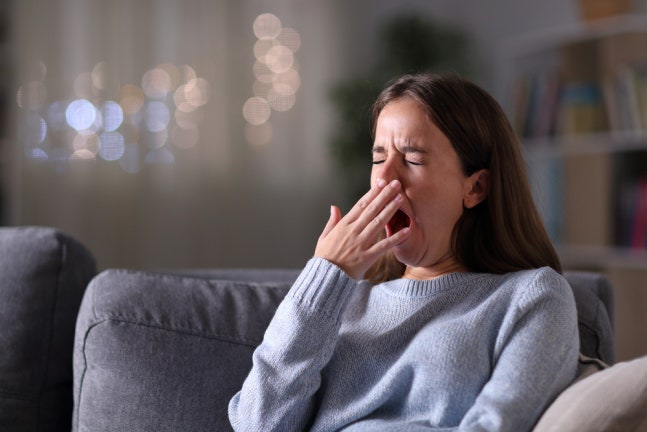
Yesterday, today, and tomorrow, I'm tired... Could it be that my body is lacking 'this'?
2024.07.29 00:30
Views Likes Scraps
I was really struck when I saw this article...
Of course, there may also be reasons related to lack of sleep...
Because I really don't drink much water...
Chronic dehydration... I thought it might be that.
I have to drink at least 1 liter a day...
If I drink now... I'll wake up at night to go to the bathroom... So I shouldn't drink now, right?
-----------------------------------------------

If you have been unusually tired and dizzy for the past 2-3 months, check if you might be in a state of chronic dehydration. Even a slight deficiency in body fluids can cause various symptoms, and during summer, the risk of dehydration is higher due to the large amount of water lost through sweating.
The World Health Organization (WHO) recommends a daily water intake of 2 liters, but the water intake of Koreans is relatively low, with 1 liter for adult men and 860 milliliters for women (based on the Korea National Health and Nutrition Examination Survey data). Most people tend to overlook thirst as a minor issue, resulting in insufficient water intake. Especially among the elderly, the central nervous system's ability to sense thirst diminishes, so they often do not realize they need water and tend not to drink enough.
Even a 2% deficiency in hydration causes our bodies to feel thirst. When hydration drops by 3-4%, symptoms such as dizziness, fatigue, and constipation occur. Over 90% of blood is composed of water, and when the body's water levels are low, blood volume decreases. This leads to a drop in blood pressure, causing dizziness.
Essential amino acids in the body need to be well delivered to every part of the cells for active metabolism, which helps prevent fatigue. The fluid in the body transports these essential amino acids. When there is a lack of fluid, fatigue is more likely to occur. In a state of chronic dehydration, bowel movements become hard, leading to constipation, and skin cells become dry, making wrinkles more likely to form.
In addition to sweating a lot in the summer, drinking a lot of beverages is also one of the causes of chronic dehydration. Drinking iced Americanos on hot days increases diuretic activity, leading to a deficiency of body fluids. Drinking a cup of coffee causes 1.5 to 2 cups worth of water to be lost from the body.
Loss of appetite due to the heat also affects skipping meals. Regardless of the type of food, 80% of a meal is water, so skipping a meal reduces water intake accordingly.
If you experience symptoms such as dry mouth and fatigue along with dark yellow urine, chronic dehydration should be suspected. Drinking a total of 1.5 to 2 liters of water throughout the day in small amounts can help alleviate symptoms of chronic dehydration.
The World Health Organization (WHO) recommends a daily water intake of 2 liters, but the water intake of Koreans is relatively low, with 1 liter for adult men and 860 milliliters for women (based on the Korea National Health and Nutrition Examination Survey data). Most people tend to overlook thirst as a minor issue, resulting in insufficient water intake. Especially among the elderly, the central nervous system's ability to sense thirst diminishes, so they often do not realize they need water and tend not to drink enough.
Even a 2% deficiency in hydration causes our bodies to feel thirst. When hydration drops by 3-4%, symptoms such as dizziness, fatigue, and constipation occur. Over 90% of blood is composed of water, and when the body's water levels are low, blood volume decreases. This leads to a drop in blood pressure, causing dizziness.
Essential amino acids in the body need to be well delivered to every part of the cells for active metabolism, which helps prevent fatigue. The fluid in the body transports these essential amino acids. When there is a lack of fluid, fatigue is more likely to occur. In a state of chronic dehydration, bowel movements become hard, leading to constipation, and skin cells become dry, making wrinkles more likely to form.
In addition to sweating a lot in the summer, drinking a lot of beverages is also one of the causes of chronic dehydration. Drinking iced Americanos on hot days increases diuretic activity, leading to a deficiency of body fluids. Drinking a cup of coffee causes 1.5 to 2 cups worth of water to be lost from the body.
Loss of appetite due to the heat also affects skipping meals. Regardless of the type of food, 80% of a meal is water, so skipping a meal reduces water intake accordingly.
If you experience symptoms such as dry mouth and fatigue along with dark yellow urine, chronic dehydration should be suspected. Drinking a total of 1.5 to 2 liters of water throughout the day in small amounts can help alleviate symptoms of chronic dehydration.
0
0
Comments 1